Table of Contents
Conditional sentences are used to express situations that depend on a particular condition. They consist of two parts: the condition and the result. Understanding how to form and use conditional sentences correctly helps improve sentence structure and communication.
Mastering these sentences is essential for expressing possibilities, outcomes, and hypothetical scenarios in both everyday and academic contexts.
What are conditional Sentences?
Conditional sentences are sentences that describe a situation and its possible result. They often have two parts: a condition (the “if” clause) and a result (the main clause). These sentences help express possibilities, hypothetical scenarios, or cause-and-effect relationships.
The condition part explains what must happen, while the result part shows what will or might occur if the condition is met. Conditional sentences are commonly used in English to discuss real, unreal, or impossible situations.
Examples:
- If you study hard, you will pass the exam.
- If it rains, we will stay at home.
- If I had more time, I would travel the world.
- If she had known about the meeting, she would have attended it.
Types of Conditional Sentences
Conditional sentences are sentences that describe a condition and its possible result. They are divided into four types based on the situation they express:
- Zero Conditional
- First Conditional
- Second Conditional
- Third Conditional
1. Zero Conditional
The zero conditional is used to talk about facts, general truths, or situations that are always true when the condition is met. Both the “if” clause and the main clause use the present simple tense.
Examples:
- If you heat water, it boils.
- If it rains, the ground gets wet.
- Plants die if they don’t get sunlight.
- If you touch fire, it burns.
2. First Conditional
The first conditional describes real and possible situations in the future. The “if” clause uses the present simple tense, while the main clause uses will + base verb.
Examples:
- If you study, you will pass the test.
- If it rains, we will stay at home.
- They will miss the bus if they don’t leave soon.
- If she calls, I will answer immediately.
3. Second Conditional
The second conditional is used to talk about unreal or hypothetical situations in the present or future. The “if” clause uses the past simple tense, and the main clause uses would + base verb.
Examples:
- If I won the lottery, I would buy a big house.
- If he were rich, he would travel the world.
- We would help you if we had more time.
- If she studied harder, she would get better grades.
4. Third Conditional
The third conditional describes past unreal situations and their imagined results. The “if” clause uses the past perfect tense, and the main clause uses would have + past participle.
Examples:
- If I had known about the meeting, I would have attended it.
- If they had studied, they would have passed the exam.
- She would have helped you if you had asked.
- If we had left earlier, we would have caught the train.
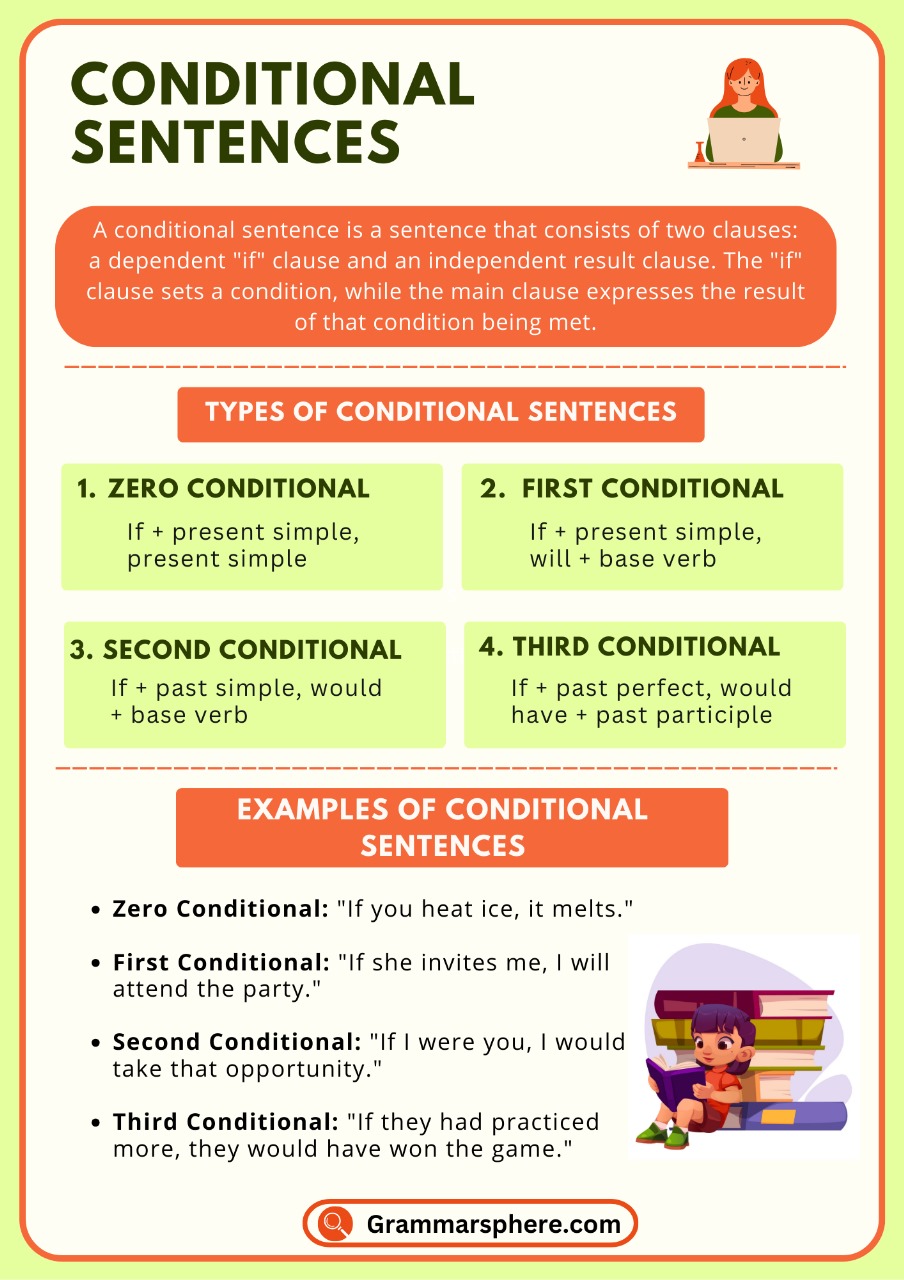
How to Use Conditional Sentences
Conditional sentences describe a hypothetical situation and its potential outcome. These sentences consist of two parts:
- Subordinate Clause (Condition): This explains the condition (e.g., If you study harder).
- Main Clause (Result): This shows the result of the condition (e.g., you will pass the exam).
The subordinate clause usually begins with the word if and may sometimes be paired with then to connect the clauses (e.g., If you try, then you will succeed). However, using then is optional.
When the subordinate clause appears at the beginning of a sentence, it is followed by a comma. For example:
- If it rains, we will stay home.
If the main clause comes first, no comma is required, and then is not included:
- We will stay home if it rains.
Conditional sentences can also use other words like provided that, so long as, or whether or not to express conditions. For example:
- You can use my car so long as you drive carefully.
Example Sentences with Conditional Sentences
- If you study, you will pass the exam.
- If it rains, we will stay home.
- If I had more time, I would read more books.
- You will feel better if you rest for a while.
- If they had prepared, they would have won the competition.
- If you eat healthy food, you will have more energy.
- If she called earlier, we would help her.
- If I were rich, I would travel the world.
- If Tom had studied, he would have passed the test.
- You will miss the bus if you don’t leave now.
- If you practice, you will improve your skills.
- If they had arrived on time, they would have met the manager.
- You can borrow the book if you return it by Friday.
- If you don’t ask, you won’t get an answer.
FAQS:
What Are the 4 Conditional Sentences?
The four types of conditional sentences are:
Zero Conditional: Used for general truths or facts.
Example: If you heat water, it boils.
First Conditional: Used for real and possible future events.
Example: If you study, you will pass the exam.
Second Conditional: Used for unreal or imaginary situations in the present or future.
Example: If I were rich, I would travel the world.
Third Conditional: Used for unreal or hypothetical situations in the past.
Example: If she had studied, she would have passed the test.
What are 5 examples of conditional?
If you study, you will pass the exam.
If it rains, we will stay home.
If I had more time, I would help you.
If they had called, we would have joined them.
If you don’t practice, you won’t improve your skills.
What is the rule of if and unless?
The word if introduces a condition that must be met for the result to happen, while unless indicates a negative condition or exception.
Use if to show a condition: If you work hard, you will succeed.
Use unless to mean “if not”: You will fail unless you work hard.
What Are the Rules for Conditional Sentences?
Zero Conditional: Use for facts.
If + present simple, present simple
Example: If it rains, it gets wet.
First Conditional: Use for real future events.
If + present simple, will + base verb
Example: If you study, you will pass.
Second Conditional: Use for unreal present or future.
If + past simple, would + base verb
Example: If I were rich, I would travel.
Third Conditional: Use for unreal past situations.
If + past perfect, would have + past participle
Example: If I had studied, I would have passed.
You May Also Like

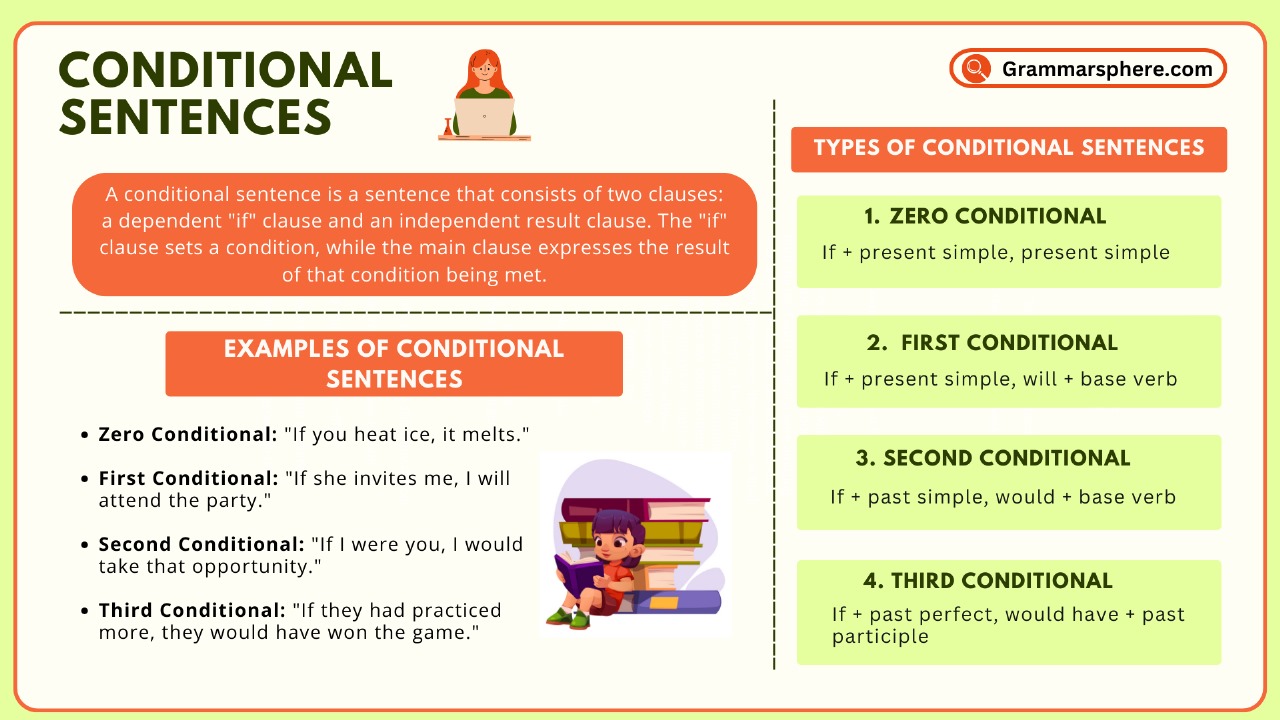
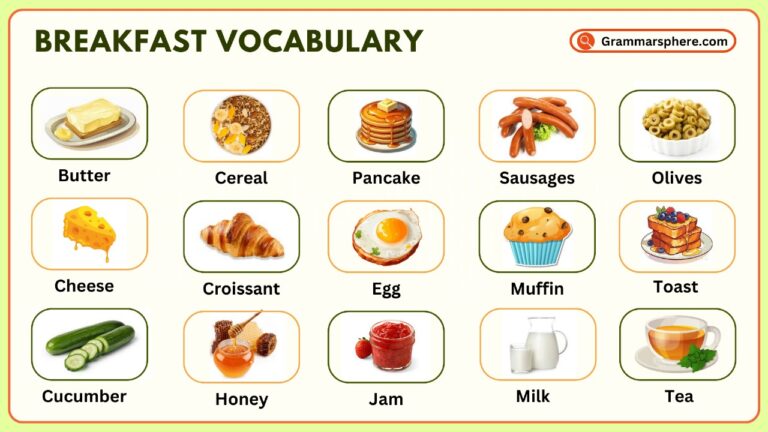
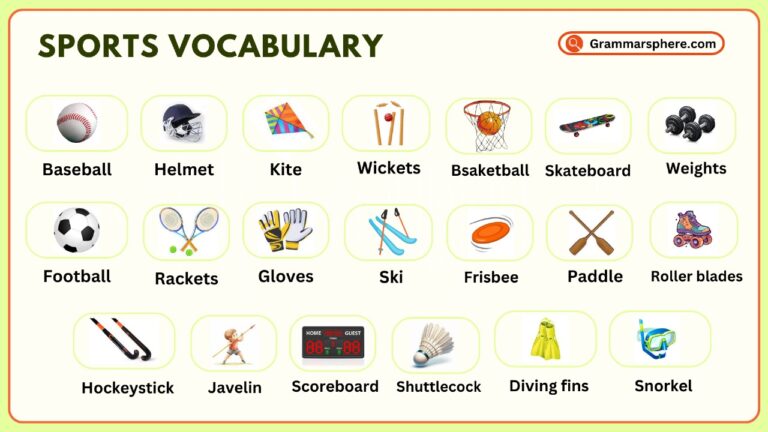
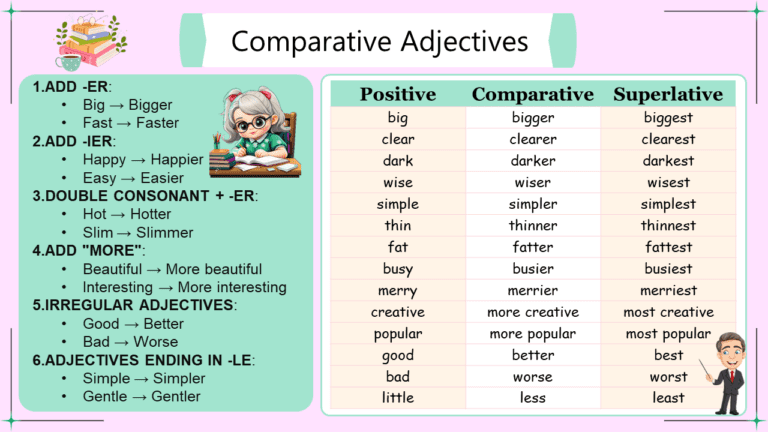
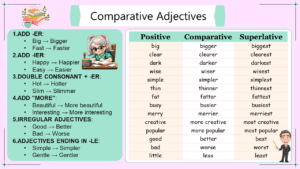
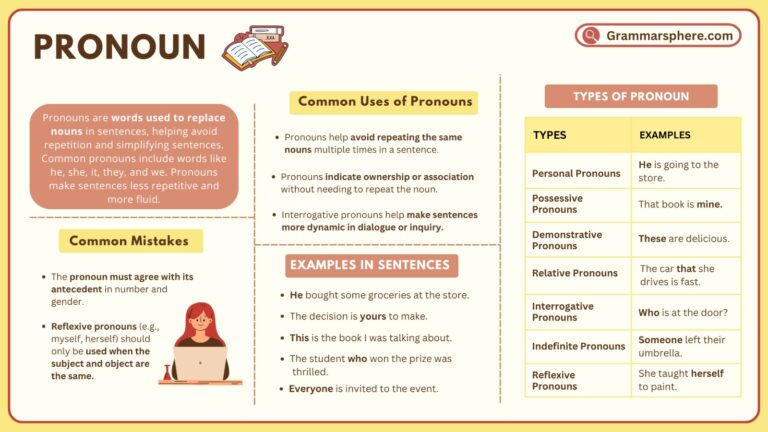
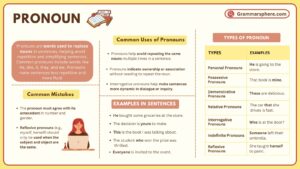
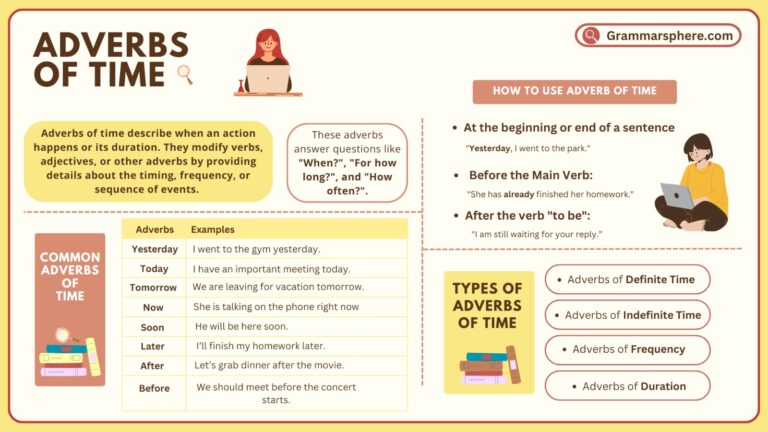
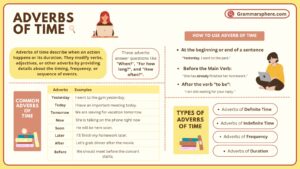
Leave a Comment